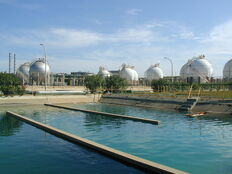- Repsol is investing €657 million in two new polymer plants in Sines, Portugal.
- The plants will produce 300,000 tons per year of linear polyethylene and polypropylene.
- The facilities will be operational in 2025.
- The Portuguese government has granted tax incentives worth up to €63 million.

Investment and Facilities
Repsol will invest €657 million to build two polymer materials plants at its Sines Industrial Complex in Portugal. This represents the largest industrial investment in Portugal in the last decade. The new plants will produce 100% recyclable materials, including linear polyethylene (PEL) and polypropylene (PP), each with a capacity of 300,000 tons per year. The facilities will be operational by 2025 and will enhance the complex's flexibility, integration, and competitiveness.
Technological Advancements
The technologies used in the new plants are market leaders and the first of their kind on the Iberian Peninsula, ensuring maximum energy efficiency. The Sines Industrial Complex will also feature new logistics facilities, including rail transport options, to improve connectivity with the European market and reduce the carbon footprint of product transportation.
Economic and Employment Impact
The Portuguese government has recognized this investment as of National Interest and has granted tax incentives worth up to €63 million. During the construction phase, the project is expected to generate an average of 550 direct and indirect jobs, peaking at over 1,000. Once operational, the net increase in personnel will be approximately 75 direct jobs and about 300 indirect jobs, all highly qualified.
Strategic Goals
This investment aligns with Repsol's 2021-2025 Strategic Plan, which includes a total investment of €18.3 billion to evolve its industrial area. The project supports Repsol's goals of being a net zero emissions company by 2050 and is aligned with the Paris Agreement. The company aims to transform its industrial complexes into multi-energy hubs, focusing on decarbonization, energy efficiency, and the circular economy.

